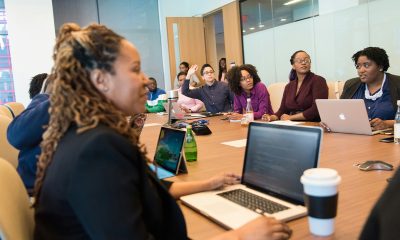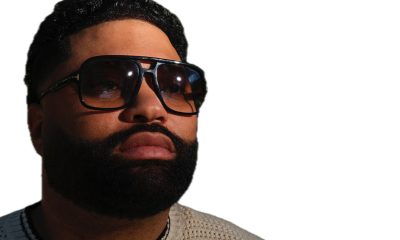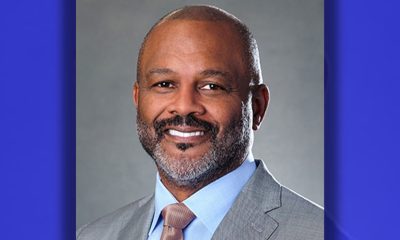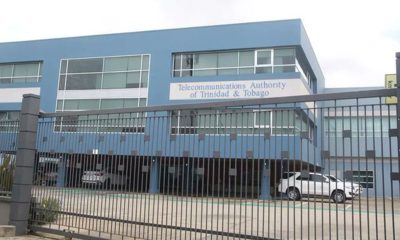Art
PRESS ROOM: Lyric Opera of Chicago and the Chicago Urban League collaborate for the second year of EmpowerYouth
CHICAGO CRUSADER — Lyric Opera of Chicago and the Chicago Urban League are pleased to announce details on the second year of their innovative youth program EmpowerYouth! Igniting Creativity through the Arts. This collaborative program provides Chicago youth an opportunity to learn about the performing arts while creating an original production.
Lyric Opera of Chicago and the Chicago Urban League are pleased to announce details on the second year of their innovative youth program EmpowerYouth! Igniting Creativity through the Arts. This collaborative program provides Chicago youth an opportunity to learn about the performing arts while creating an original production.
EmpowerYouth! is an academic-yearlong program engaging 30 African-American high school students from Chicago in a process that encourages them to tell their story in their own words. Students meet weekly with professional artists who specialize in acting, composition, vocal training, dance, and writing. At each session, participants take part in a collaborative process that results in an original stage production. This year’s work, We Got Next, will be performed on Friday, May 17, 2019 at 7pm at Truman College located in the Uptown neighborhood of Chicago.
Guiding students as acting coach and stage director is one of Chicago’s theater community leaders, Tony Santiago (About Face Theater, The Chicago Theater Accountability Coalition). Librettist/scriptwriter Derek McPhatter (This App is Not the Business, Bring the Beat Back) and composer/songwriter Paris Ray Dozier (Last Stop On Market Street, Mr. Chickee’s Funny Money) work with participants to incorporate their stories and ideas into the original script and music. Tanji Harper, artistic director of the Chicago youth performance nonprofit The Happiness Club, serves as movement coach and choreographer. Kedrick Armstrong, Project Inclusion Fellow in Conducting with Chicago Sinfonietta and assistant music director of Wheaton College Opera, is music supervisor. Add-2, the founder of Haven Studio and Chicago performing artist serves as rap coach.
Additional team members include Marty McConnell and Mariah Neuroth, co-founders of Appreciative Solutions Group, who serve as facilitators for the program. They are joined by Jonathan Brown, MSW, whose dual role as program coordinator and social worker supports the social-emotional development objectives of the EmpowerYouth!program.
The intent of the EmpowerYouth! program is to support young people in telling their stories as young, Black Chicagoans. The current production aims to tell the story of a day in their lives, outside of the school setting, dealing with issues that are pertinent to them. Themes of friendship, the value of having a community, making big decisions about their futures, and dealing with conflict are all are present. Music – including singing and rap, acting, and dance, will all play a prominent role in the final performance.
The final performance of the EmpowerYouth! students will take place at Truman College on May 17 at 7pm. Tickets are free but require a reservation. Reservations can be made by calling Lyric’s Audience Services department at 312.827.5600 and are subject to availability.
EmpowerYouth! is a program jointly planned and administered by Lyric Unlimited, Lyric’s education and community engagement arm, and the Chicago Urban League. This year’s production represents the continued commitment of Lyric Unlimited and the Chicago Urban League to work with Chicago youth to create an original performance while offering exposure and opening avenues to careers in the arts. In addition to the intensive weekly sessions, EmpowerYouth! students attended the finals for Young Chicago Authors Louder Than A Bomb at the Auditorium Theater, Rightlyndat Victory Gardens Theater, and a performance of the opera La traviata at Lyric Opera of Chicago. They also met rising opera star Zoie Reams, a native Chicagoan, who sang the role of Flora in La traviata.
“We are pleased to partner with Lyric Opera to provide high school students with this exceptional opportunity to learn from, work and co-create with leaders in Chicago’s theater community for the second year in a row,” said Barbara Lumpkin, Interim President and CEO of the Chicago Urban League. “Through this unique educational experience, our students have the chance to incorporate their personal life experiences growing up in their Chicago communities into a real stage production that also lets them showcase their many talents. We are deeply grateful to Lyric Opera for the continued collaboration and to Truman College for lending its stage for this year’s performance.”
“It is so exciting to see the second year unfold for this incredibly special program” said Cayenne Harris, vice president of Lyric Unlimited. ”In its first year, EmpowerYouth!participants exceeded all of our expectations through the process of creating an original opera presented on stage at the Lyric Opera House. This year the creativity of our youth is felt deeply through every aspect of the creation process. We all look forward to the final performance for this year’s young artists, and to continuing the program next season.”
About Lyric Unlimited
Lyric Unlimited is a long-term, evolving initiative that encompasses company activities that are not part of Lyric’s mainstage opera season. Its mission is to provide a relevant cultural service to communities throughout the Chicago area and to advance the development of opera by exploring how opera as an art form can resonate more powerfully with people of multiple backgrounds, ethnicities, and interests. It also leads the development of innovative partnerships with a wide range of cultural, community, and educational organizations to create a breadth of programming through which Chicagoans of all ages can connect with Lyric. In the 2017/18 season, more than 95,000 individuals participated in Lyric Unlimited programs.
For more information about Lyric Unlimited program offerings, visit lyricopera.org/lyricunlimited.
About the Chicago Urban League
Established in 1916, the Chicago Urban League is a civil rights organization that empowers and inspires individuals to reach and exceed their economic potential. The Chicago Urban League supports and advocates for economic, educational and social progress for African-Americans through our agenda focused exclusively on economic empowerment as the key driver for social change. For more information, visit www.thechicagourbanleague.org.
About Lyric
Lyric Opera of Chicago’s mission is to express and promote the life-changing, transformational, revelatory power of great opera. Lyric exists to provide a broad, deep, and relevant cultural service to Chicago and the nation, and to advance the development of the art form.
Founded in 1954, Lyric is dedicated to producing and performing consistently thrilling, entertaining, and thought-provoking opera with a balanced repertoire of core classics, lesser-known masterpieces, and new works; to creating an innovative and wide-ranging program of community engagement and educational activities; and to developing exceptional emerging operatic talent.
Under the leadership of general director, president & CEO Anthony Freud, music director Sir Andrew Davis, and creative consultant Renée Fleming, Lyric strives to become The Great North American Opera Company for the 21st century: a globally significant arts organization embodying the core values of excellence, relevance, and fiscal responsibility.
To learn more about Lyric’s current and upcoming season, go to lyricopera.org. You can also join the conversation with @LyricOpera on Twitter, Instagram, and Facebook. #Lyric1819 #Lyric1920 #LongLivePassion
EmpowerYouth! Igniting Creativity through the Arts is made possible by support from The Beaubien Family, the Lauter McDougal Charitable Fund, Eric and Deb Hirschfield, Dan J. Epstein, Judy Guitelman and the Dan J. Epstein Family Foundation, the Eisen Family Foundation, the Estate of Pierrete E. Sauvat, Fifth Third Bank, and OPERA America.
This article originally appeared in the Chicago Crusader.
Art
Marin County: A Snapshot of California’s Black History Is on Display
The Marin County Office of Education, located at 1111 Las Gallinas Ave in San Rafael, will host the extraordinary exhibit, “The Legacy of Marin City: A California Black History Story (1942-1960),” from Feb. 1 to May 31, 2024. The interactive, historical, and immersive exhibit featuring memorabilia from Black shipyard workers who migrated from the South to the West Coast to work at the Marinship shipyard will provide an enriching experience for students and school staff. Community organizations will also be invited to tour the exhibit.
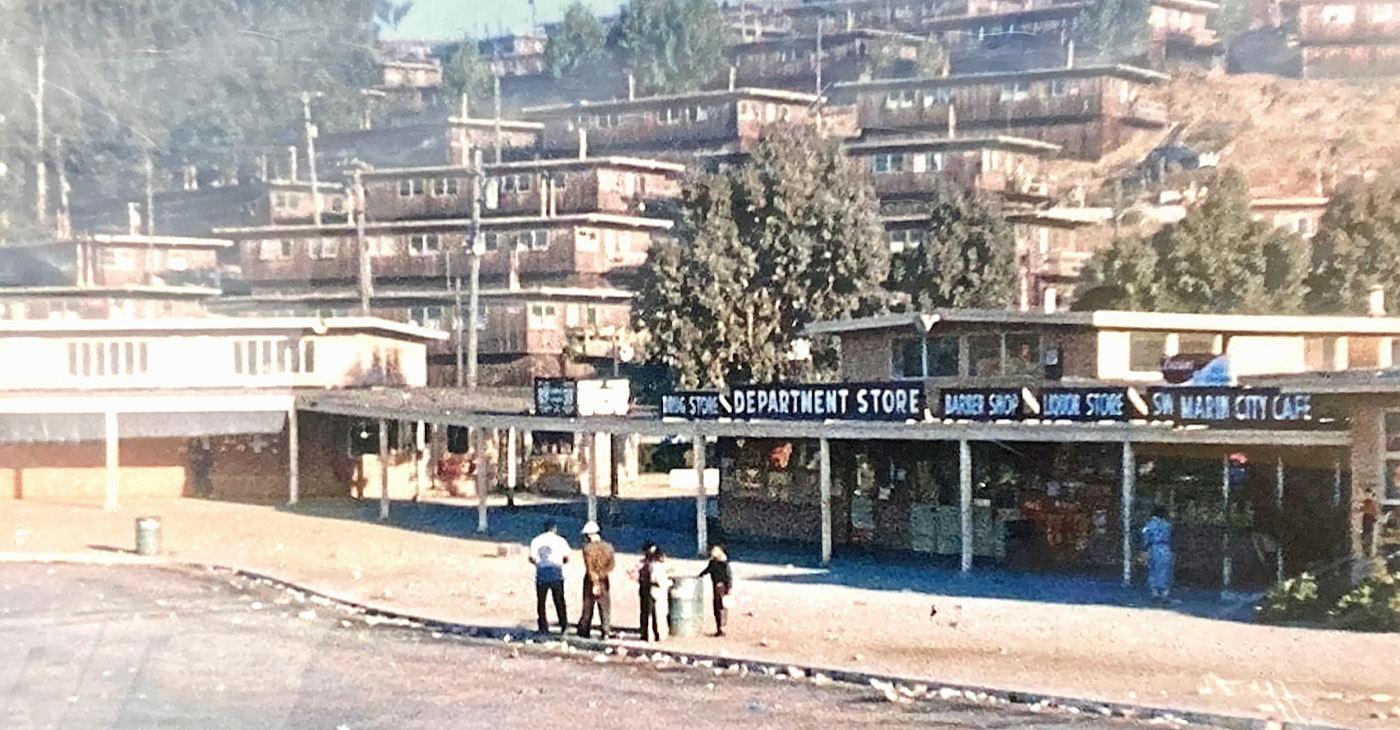
By Post Staff
The Marin County Office of Education, located at 1111 Las Gallinas Ave in San Rafael, will host the extraordinary exhibit, “The Legacy of Marin City: A California Black History Story (1942-1960),” from Feb. 1 to May 31, 2024.
The interactive, historical, and immersive exhibit featuring memorabilia from Black shipyard workers who migrated from the South to the West Coast to work at the Marinship shipyard will provide an enriching experience for students and school staff. Community organizations will also be invited to tour the exhibit.
All will have the opportunity to visit and be guided by its curator Felecia Gaston.
The exhibit will include photographs, articles and artifacts about the Black experience in Marin City from 1942 to 1960 from the Felecia Gaston Collection, the Anne T. Kent California Room Collection, The Ruth Marion and Pirkle Jones Collection, The Bancroft Library, and the Daniel Ruark Collection.
It also features contemporary original artwork by Chuck D of the Rock and Roll Hall of Fame group Public Enemy, clay sculptures by San Francisco-based artist Kaytea Petro, and art pieces made by Marin City youth in collaboration with Lynn Sondag, Associate Professor of Art at Dominican University of California.
The exhibit explores how Marin City residents endured housing inequities over the years and captures the history of plans to remove Black residents from the area after World War II. Throughout, it embodies the spirit of survival and endurance that emboldened the people who made Marin City home.
Felecia Gaston is the author of the commemorative book, ‘A Brand New Start…This is Home: The Story of World War II Marinship and the Legacy of Marin City.’ Thanks to the generous contribution of benefactors, a set of Felecia’s book will be placed in every public elementary, middle, and high school library in Marin.
In addition, educators and librarians at each school will have the opportunity to engage with Felecia in a review of best practices for utilizing the valuable primary sources within the book.
“Our goal is to provide students with the opportunity to learn from these significant and historical contributions to Marin County, California, and the United States,” said John Carroll, Marin County Superintendent of Schools.
“By engaging with Felecia’s book and then visiting the exhibit, students will be able to further connect their knowledge and gain a deeper understanding of this significant historical period,” Carroll continued.
Felecia Gaston adds, “The Marin County Office of Education’s decision to bring the Marin City Historical Traveling Exhibit and publication, ‘A Brand New Start…This is Home’ to young students is intentional and plays a substantial role in the educational world. It is imperative that our community knows the contributions of Marin City Black residents to Marin County. Our youth are best placed to lead this transformation.”
The Marin County Office of Education will host an Open House Reception of the exhibit’s debut on Feb. 1 from 4 p.m. – 6 p.m.. All school staff, educators, librarians, and community members are encouraged to attend to preview the exhibit and connect with Felecia Gaston. To contact Gaston, email MarinCityLegacy@marinschools.org
Activism
Alternative Outcome to Slayings by Police Explored in One-Man Play
BLACK MEN EVERYWHERE! is the explosive new one man play written, directed, and performed by Jinho “Piper” Ferreira. Set against the backdrop of a presidential election, the play explores how political and cultural leaders wield the myth of the dangerous Black man to manipulate the masses for personal gain. Piper penned the follow-up to his ground-breaking solo play, “Cops and Robbers,” after an impromptu cross-country Black history tour.
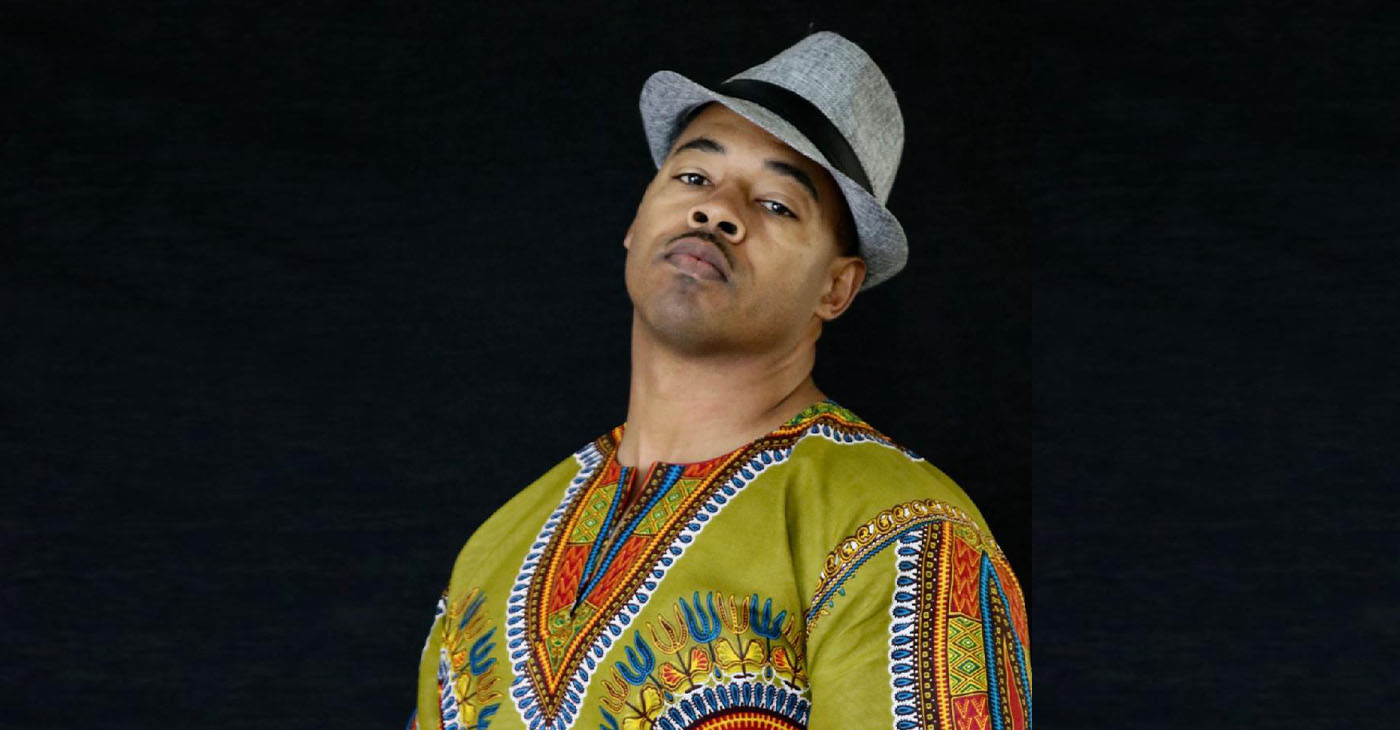
Special to The Post
What would happen if police officers who have gotten off for killing unarmed Black people started turning up dead?
BLACK MEN EVERYWHERE! is the explosive new one man play written, directed, and performed by Jinho “Piper” Ferreira. Set against the backdrop of a presidential election, the play explores how political and cultural leaders wield the myth of the dangerous Black man to manipulate the masses for personal gain.
Piper penned the follow-up to his ground-breaking solo play, “Cops and Robbers,” after an impromptu cross-country Black history tour.
“My wife and I had been talking about it for years,” Ferreira said. They had taken their three children to Brazil several times and West Africa but had yet to explore their history as Black people in this country. “It was Juneteenth last year and I realized we had a few weeks to make it happen, so we just jumped in the car and left” Piper said.
Three weeks later the family had seen everything from the African American Museum of History and Culture in Wash., D.C., to the phenomenally preserved Whitney Plantation in Louisiana. They’d stood outside of the balcony of the Lorraine Hotel where Dr. Martin Luther King Jr. was assassinated in Memphis, Tenn., walked across the Edmund Pettus Bridge in Selma, Ala., and paid their respects at the Africa Town cemetery – where the passengers of the Clotilda (the last known U.S. slave ship to smuggle captured Africans into this country) were buried near Mobile, Ala.
“We had the kids keep a journal of the trip and my wife and I took notes, but once we got back home, I knew I had to make the pen move,” he said.
Ferreira plays 21 characters in the 60-minute emotional roller coaster ride; personalities we all know. While brilliantly weaving in themes of revolution, treachery, and revenge, “Black Men Everywhere!” is surprisingly — more than anything else — a love story.
“I wrote the play for Black men and everyone who loves us,” Ferreira said. “The play is narrated by a sistah and performed in front of the deeply spiritual artwork of Nedra T. Williams, an Oakland priestess of Olokun. It’s called ‘Black Men Everywhere!’ but we don’t exist without the Black woman.”
For tickets, please go to: http://tinyurl.com/5dm3mhra
Art
City of Stockton Seeks Applications for Public Art Murals
The City of Stockton Arts Commission (SAC) has announced the opportunity for artist(s) and/or artist teams to apply to design and paint original artwork on City-owned property through a Public Art Mural Program. The deadline for applications is Friday, March 8, 2024, at 5 p.m. Applications and additional information are available online at www.stocktonca.gov/publicart.
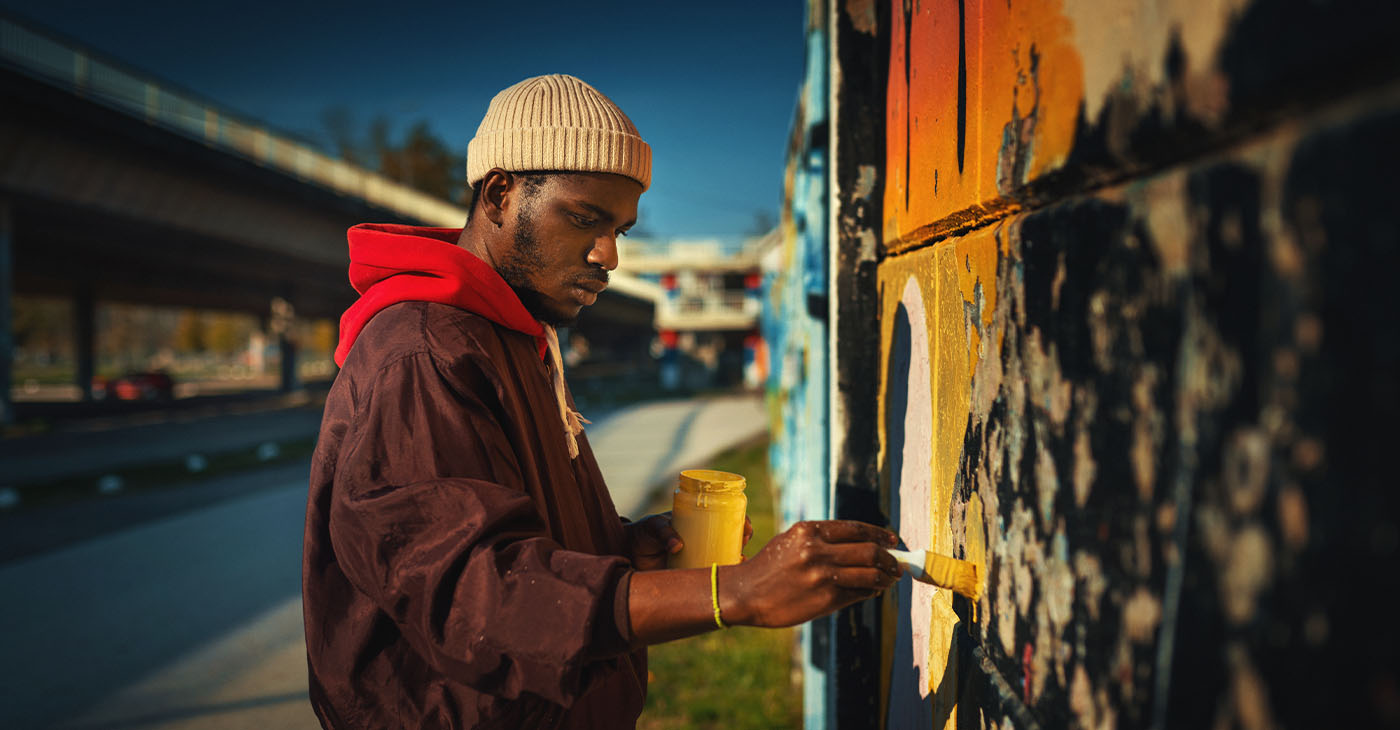
City of Stockton
The City of Stockton Arts Commission (SAC) has announced the opportunity for artist(s) and/or artist teams to apply to design and paint original artwork on City-owned property through a Public Art Mural Program.
The deadline for applications is Friday, March 8, 2024, at 5 p.m. Applications and additional information are available online at www.stocktonca.gov/publicart.
The Public Art Mural Program incentivizes mural installations by providing city funding and the means of curating the City’s collection of murals.
This program has $50,000 in available funds for artist(s) and is also available for those who have already identified funds and would like to complete a mural project on city-owned property. Applications will be reviewed on a competitive basis and selected by the SAC.
To learn more about the Stockton Arts Commission (SAC) or qualifications and eligibility for Public Art Mural Program, please visit www.stocktonca.gov/publicart or call the Community Services Department at (209) 937-8206.
-

 Activism4 weeks ago
Activism4 weeks agoOakland Post: Week of March 20 – 26, 2024
-

 #NNPA BlackPress3 weeks ago
#NNPA BlackPress3 weeks agoCOMMENTARY: D.C. Crime Bill Fails to Address Root Causes of Violence and Incarceration
-

 #NNPA BlackPress3 weeks ago
#NNPA BlackPress3 weeks agoMayor, City Council President React to May 31 Closing of Birmingham-Southern College
-

 #NNPA BlackPress3 weeks ago
#NNPA BlackPress3 weeks agoCOMMENTARY: Lady Day and The Lights!
-

 #NNPA BlackPress3 weeks ago
#NNPA BlackPress3 weeks agoFrom Raids to Revelations: The Dark Turn in Sean ‘Diddy’ Combs’ Saga
-

 #NNPA BlackPress3 weeks ago
#NNPA BlackPress3 weeks agoBaltimore Key Bridge Catastrophe: A City’s Heartbreak and a Nation’s Alarm
-

 #NNPA BlackPress3 weeks ago
#NNPA BlackPress3 weeks agoBaltimore’s Key Bridge Struck by Ship, Collapses into Water
-

 Activism3 weeks ago
Activism3 weeks agoOakland Post: Week of March 27 – April 2, 2024



